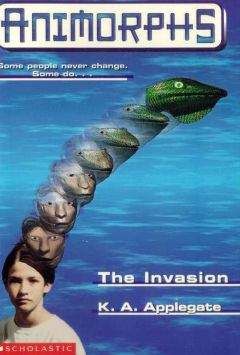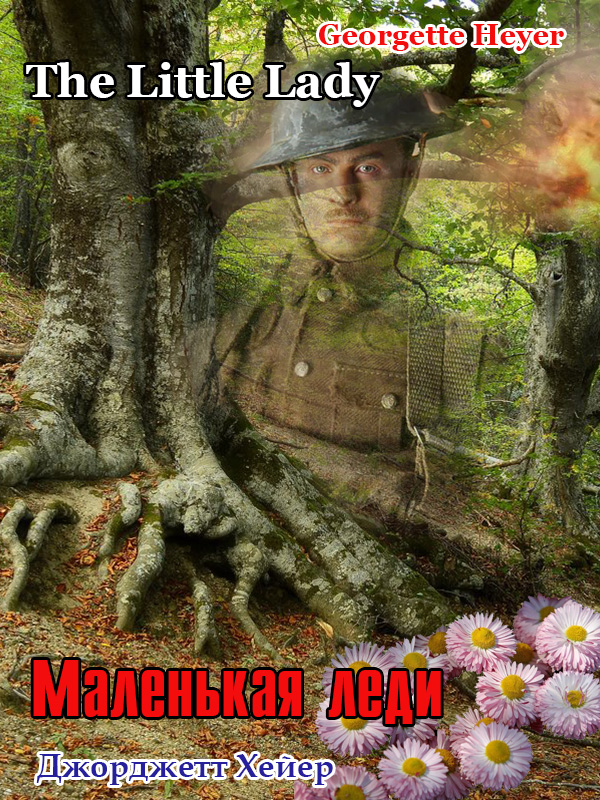Илья Франк - Английский язык с В. Ирвингом. Рип ван Винкль

Помощь проекту
Английский язык с В. Ирвингом. Рип ван Винкль читать книгу онлайн
There was, as usual, a crowd of folk about the door, but none that Rip recollected. The very character of the people seemed changed. There was a busy, bustling, disputatious tone about it, instead of the accustomed phlegm and drowsy tranquillity. He looked in vain for the sage Nicholas Vedder, with his broad face, double chin, and fair long pipe, uttering clouds of tobacco-smoke instead of idle speeches; or Van Bummel, the schoolmaster doling forth the contents of an ancient newspaper. In place of these, a lean, bilious-looking fellow, with his pockets full of handbills, was haranguing vehemently about rights of citizens — elections — members of congress — liberty — Bunker's Hill — heroes of seventy-six — and other words, which were a perfect Babylonish jargon to the bewildered Van Winkle.
The appearance of Rip (внешность Рипа), with his long grizzled beard (с его длинной седеющей бородой), his rusty fowling-piece (ржавым охотничьим ружьем), his uncouth dress (запущенной одеждой; uncouth — странный; грубоватый, грубый, неотесанный), and an army of women and children at his heels (и армией женщин и детей позади: «по пятам»), soon attracted the attention of the tavern politicians (вскоре привлекла внимание политиканов таверны). They crowded around him (они столпились вокруг него), eyeing him from head to foot with great curiosity (с большим любопытством оглядывая его с головы до ног). The orator bustled up to him (оратор заторопился к нему; to bustle up [bAsl Ap] — торопиться), and, drawing him partly aside (и, несколько отведя его в сторонку), inquired (поинтересовался) "on which side he voted (на чьей стороне он голосовал)?" Rip stared in vacant stupidity (Рип уставился /на него/ в полном: «безжизненном/беззвучном» отупении; vacant — незанятый, свободный; безжизненный; беззвучный; рассеянный, безучастный, отсутствующий, отрешенный). Another short (другой низкорослый) but busy little fellow pulled him by the arm (но деловой малый дернул его за руку; to pull — тянуть), and, rising on tiptoe (и, поднявшись на цыпочки), inquired in his ear (спросил его на ухо; to inquire — осведомляться), "Whether he was Federal or Democrat (был ли он федералом или демократом)?"
The appearance of Rip, with his long grizzled beard, his rusty fowling-piece, his uncouth dress, and an army of women and children at his heels, soon attracted the attention of the tavern politicians. They crowded around him, eyeing him from head to foot with great curiosity. The orator bustled up to him, and, drawing him partly aside, inquired "on which side he voted?" Rip stared in vacant stupidity. Another short but busy little fellow pulled him by the arm, and, rising on tiptoe, inquired in his ear, "Whether he was Federal or Democrat?"
Rip was equally at a loss to comprehend the question (Рип все равно никак не мог: «равно был в недоумении» понять этот вопрос); when a knowing (когда значительный), self-important old gentleman (важный пожилой господин), in a sharp cocked hat (в треуголке: «в остро поднятой шляпе»; to cock — поднимать, загибать кверху /как петух свой хвост/; cocked hat — треуголка /головной убор/), made his way through the crowd (прошел: «проложил свой путь» сквозь толпу), putting them to the right and left with his elbows (расталкивая их направо и налево своими локтями) as he passed (когда он проходил = проходя), and planting himself before Van Winkle (и, встав перед ван Винклем; to plant [plQ:nt] — сажать /растения/; прочно ставить), with one arm akimbo (подбоченясь одной рукой; akimbo [q‘kImbqV] — руки в боки, подбоченясь), the other resting on his cane (а другую положив на свою трость; to rest — покоиться, лежать; класть), his keen eyes and sharp hat penetrating (/при этом/ его проницательные глаза и острая шляпа проникали), as it were (как будто), into his very soul (в самую его душу), demanded in an austere tone (потребовал суровым тоном; austere [O'stIq] — строгий; аскетический, суровый), "what brought him to the election with a gun on his shoulder (что принесло его на выборы с ружьем на плече), and a mob at his heels (и с толпой по пятам), and whether he meant to breed a riot in the village (и намеревался ли он вызвать в деревне бунт; to breed [bri:d] — вынашивать, высиживать; порождать, вызывать; riot [raIqt] — бунт, восстание, мятеж)?" — "Alas! Gentlemen (увы, господа)," cried Rip (воскликнул Рип), somewhat dismayed (несколько испуганный; dismay — испуг, беспокойство, волнение, смятение; to dismay — лишать мужества, силы духа, решимости; пугать, ужасать; приводить в смятение), "I am a poor quiet man (я бедный, тихий человек), a native of the place (уроженец этого места; native [‘neItIv] — уроженец; абориген, автохтон, туземец), and a loyal subject of the king (и верный подданный короля), God bless him (благослови его Бог)!"
Rip was equally at a loss to comprehend the question; when a knowing, self-important old gentleman, in a sharp cocked hat, made his way through the crowd, putting them to the right and left with his elbows as he passed, and planting himself before Van Winkle, with one arm akimbo, the other resting on his cane, his keen eyes and sharp hat penetrating, as it were, into his very soul, demanded in an austere tone, "what brought him to the election with a gun on his shoulder, and a mob at his heels, and whether he meant to breed a riot in the village?" — "Alas! gentlemen," cried Rip, somewhat dismayed, "I am a poor quiet man, a native of the place, and a loyal subject of the king, God bless him!"
Here a general shout burst from the by-standers (тут раздался общий крик зевак: «возле-стоящих»; to burst [bq:st] — burst — burst — лопаться; разрываться; взрываться /о снаряде и т. п./; прорываться; разражаться; by-stander [‘baI,stxndq] — свидетель; наблюдатель) — "A tory (один из тори; tory [‘tO:rI] — английская политическая партия, возникшая в XVII веке, консервативная партия; член консервативной партии)! a tory (тори)! a spy (шпион)! a refugee (беженец)! hustle him (толкай = гони его)! away with him (долой его)!" It was with great difficulty (с большим трудом) that the self-important man in the cocked hat restored order (что важный человек в треуголке восстановил порядок); and, having assumed a tenfold austerity of brow (и, придав в десять раз более суровое выражение челу; tenfold [‘tenfqVld] — десятикратный; увеличенный в десять раз; усиленный в десять раз; brow [braV] — бровь; лоб, чело), demanded again of the unknown culprit (снова спросил неизвестного виновника; culprit [‘kAlprIt] — обвиняемый; подсудимый; преступник; виновный, правонарушитель), what he came there for (для чего он пришел сюда), and whom he was seeking (и кого он искал)? The poor man humbly assured him (бедняга: «бедный человек» робко заверил его) that he meant no harm (что он не имел в виду ничего дурного; to mean [mi:n] — meant [ment] — meant — намереваться, иметь в виду; предназначать; думать, подразумевать; harm — вред), but merely came there in search of some of his neighbors (а просто пришел сюда в поисках кого-нибудь из соседей), who used to keep about the tavern (которые обычно держались возле таверны).
Here a general shout burst from the by-standers — "A tory! a tory! a spy! a refugee! hustle him! away with him!" It was with great difficulty that the self-important man in the cocked hat restored order; and, having assumed a tenfold austerity of brow, demanded again of the unknown culprit, what he came there for, and whom he was seeking? The poor man humbly assured him that he meant no harm, but merely came there in search of some of his neighbors, who used to keep about the tavern.
"Well (так) — who are they (кто они) — name them (назови их /имена/)."
Rip bethought himself a moment (Рип задумался на мгновение), and inquired (и поинтересовался), "Where's Nicholas Vedder (где Николас Веддер)?"
There was a silence for a little while (некоторое время стояла тишина: «там была тишина некоторое время»), when an old man replied (затем один старик ответил), in a thin piping voice (тонким визгливым голосом; piping [‘paIpIN] — писклявый, пронзительный, резкий; визгливый), "Nicholas Vedder (Николас Веддер)! Why (так), he is dead and gone these eighteen years (он умер и ушел в мир иной уже как восемнадцать лет: «эти восемнадцать лет»)! There was a wooden tombstone in the church-yard (там было деревянное надгробие на церковном дворе; tombstone [‘tu:mstqVn] — могильная, надгробная плита, памятник; tomb — могила) that used to tell all about him (которое, бывало, говорило о нем), but that's rotten (но оно сгнило; to rot — гнить) and gone too (и сгинуло: «ушло» тоже)."
"Well — who are they — name them."
Rip bethought himself a moment, and inquired, "Where's Nicholas Vedder?"
There was a silence for a little while, when an old man replied, in a thin piping voice, "Nicholas Vedder! why, he is dead and gone these eighteen years! There was a wooden tombstone in the church-yard that used to tell all about him, but that's rotten and gone too."
"Where's Brom Dutcher (где Бром Дутчер)?"
"Oh, he went off to the army in the beginning of the war (о, он ушел в армию в начале войны); some say (кто-то говорит, /что/) he was killed at the storming of Stony Point[3] (он был убит при штурме Стони Пойнт) — others say (другие говорят, /что/) he was drowned in a squall at the foot of Antony's Nose[4] (он утонул во время бури у подножья Энтони Ноуз). I don't know (я не знаю) — he never came back again (он так никогда и не вернулся: «он никогда не вернулся снова»)."
"Where's Brom Dutcher?"
"Oh, he went off to the army in the beginning of the war; some say he was killed at the storming of Stony Point — others say he was drowned in a squall at the foot of Antony's Nose. I don't know — he never came back again."
"Where's Van Bummel (где ван Буммель), the schoolmaster (школьный учитель)?"
"He went off to the wars too (он тоже ушел на войну), was a great militia general (стал важным генералом народного ополчения; militia [mI‘lISq] — милиция; народное ополчение; милиционная армия; граждане, которые могут быть призваны на военную службу), and is now in congress (а теперь в конгрессе)."
"Where's Van Bummel, the schoolmaster?"
"He went off to the wars too, was a great militia general, and is now in congress."
Rip's heart died away (сердце Рипа замерло) at hearing of these sad changes in his home and friends (слыша об этих грустных переменах /произошедших/ у него дома и с его друзьями) and finding himself thus alone in the world (и оказываясь: «находя себя» таким одиноким в мире; thus [DAs] — так, таким образом; в соответствии, соответственно; до такой степени). Every answer puzzled him too (каждый ответ его также ставил в тупик), by treating of such enormous lapses of time (относясь = так как относился к такому большому промежутку времени), and of matters (и к делам) which he could not understand (которые он не мог понять): war (война) — congress (конгресс) — Stony Point (Стони Пойнт) —, — he had no courage to ask after any more friends (ему не хватило: «не имел никакой» храбрости расспросить еще о других друзьях), but cried out in despair (но только закричал в отчаянии), "Does nobody here know Rip Van Winkle (неужели никто здесь не знает Рипа ван Винкля)?"
"Oh, Rip Van Winkle! (о, Рип ван Винкль)" exclaimed two or three (воскликнули двое или трое; to exclaim [Iks’kleIm] — восклицать), "Oh, to be sure (о, несомненно)! that's Rip Van Winkle yonder (это вон там /стоит/ Рип ван Винкль; yonder [‘jOndq] — вон тот; вон там; в ту сторону), leaning against the tree (прислонившись к дереву)."























